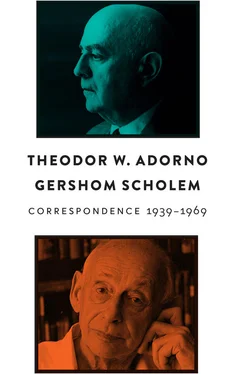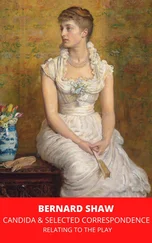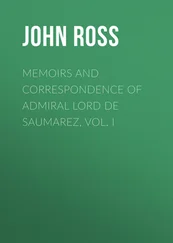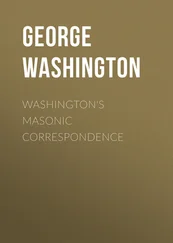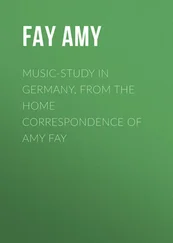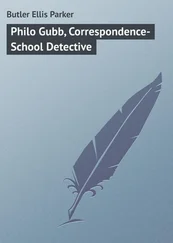320 281
321 282
322 283
323 284
324 285
325 286
326 287
327 288
328 289
329 290
330 291
331 292
332 293
333 294
334 295
335 296
336 297
337 298
338 299
339 300
340 301
341 302
342 303
343 304
344 305
345 306
346 307
347 308
348 309
349 310
350 311
351 312
352 313
353 314
354 315
355 316
356 317
357 318
358 319
359 320
360 321
361 322
362 323
363 324
364 325
365 326
366 327
367 328
368 329
369 330
370 331
371 332
372 333
373 334
374 335
375 336
376 337
377 338
378 339
379 340
380 341
381 342
382 343
383 344
384 345
385 346
386 347
387 348
388 349
389 350
390 351
391 352
392 353
393 354
394 355
395 356
396 357
397 358
398 359
399 360
400 361
401 362
402 363
403 364
404 365
405 366
406 367
407 368
408 369
409 370
410 371
411 372
412 373
413 374
414 375
415 376
416 377
417 378
418 379
419 380
420 381
421 382
422 383
423 384
424 385
425 386
426 387
427 388
428 389
429 390
430 391
431 392
432 393
433 394
434 395
435 396
436 397
437 398
438 399
439 400
440 401
441 402
442 403
443 404
444 405
445 406
446 407
447 408
448 409
449 410
450 411
451 412
452 413
453 414
454 415
455 416
456 417
457 418
458 419
459 420
460 421
Theodor W. Adorno and Gershom Scholem
Edited and with an Introduction by Asaf Angermann
Translated by Paula Schwebel and Sebastian Truskolaski
polity
Originally published in German as “Der Liebe Gott wohnt im Detail” Theodor W. Adorno / Gershom Scholem Briefwechsel 1939–1969 , herausgegeben von Asaf Angermann © Suhrkamp Verlag, Berlin, 2015
This English edition © Polity Press, 2021
The translation of this work was supported by a grant from the Goethe-Institut.

Polity Press
65 Bridge Street
Cambridge CB2 1UR, UK
Polity Press
101 Station Landing
Suite 300
Medford, MA 02155, USA
All rights reserved. Except for the quotation of short passages for the purpose of criticism and review, no part of this publication may be reproduced, stored in a retrieval system or transmitted, in any form or by any means, electronic, mechanical, photocopying, recording or otherwise, without the prior permission of the publisher.
ISBN-13: 978-1-5095-1049-8
A catalogue record for this book is available from the British Library.
Library of Congress Cataloging-in-Publication Data
Names: Adorno, Theodor W., 1903-1969, author. | Scholem, Gershom, 1897-1982, author. | Angermann, Asaf, 1978- editor. | Schwebel, Paula, 1981- translator. | Truskolaski, Sebastian, translator.
Title: Correspondence : 1939 - 1969 / Theodore W. Adorno and Gershom Scholem ; edited by Asaf Angermann ; translated by Paula Schwebel and Sebastian Truskolaski.
Description: Medford : Polity, [2020] | Originally published in German as “Der Liebe Gott wohnt im Detail”: Briefwechsel 1969-1969. Herausgegeben von Asaf Angermann © Suhrkamp Verlag Berlin 2015. | Includes bibliographical references and index. | Summary: “Thirty years of epistolary friendship between two towering figures of the 20th century”-- Provided by publisher.
Identifiers: LCCN 2020005504 (print) | LCCN 2020005505 (ebook) | ISBN 9781509510450 (hardback) | ISBN 9781509510498 (epub)
Subjects: LCSH: Adorno, Theodor W., 1903-1969. Correspondence Selections English. | Scholem, Gershom, 1897-1982. Correspondence. | Authors, German--20th century--Correspondence. | Intellectuals--Germany--Correspondence. | Germany--Intellectual life--20th century.
Classification: LCC B3199.A34 A4213 2020 (print) | LCC B3199.A34 (ebook) | DDC 193 [B]--dc23
LC record available at https://lccn.loc.gov/2020005504LC ebook record available at https://lccn.loc.gov/2020005505
The publisher has used its best endeavours to ensure that the URLs for external websites referred to in this book are correct and active at the time of going to press. However, the publisher has no responsibility for the websites and can make no guarantee that a site will remain live or that the content is or will remain appropriate.
Every effort has been made to trace all copyright holders, but if any have been overlooked the publisher will be pleased to include any necessary credits in any subsequent reprint or edition.
For further information on Polity, visit our website: politybooks.com
“Overall, my memory of this might involve much retrospective fantasy,” Theodor W. Adorno reminisced about his first encounter with Gershom Scholem, which must have taken place sometime around 1923.
Anyway, the setting was the Frankfurt Civic Hospital; it seems to me that it was the garden. He was wearing a bathrobe, if I didn’t retroactively make that up, associating it with the impression of a Bedouin prince, which he invoked in me with his blazing eyes – at a time when I was blissfully ignorant of the situation in the Near East. It was this ignorance that made me irreverently say to him that I was envious of his imminent travel to Palestine – it was nothing other than the emigration itself. I imagined the Arab girls to be so appealing, wearing copper chains on their slender ankles. Scholem responded, in that truly down-to-earth Berlin dialect, which he kept through forty-five years of Zion and which the great Hebraist, as a rumor has it, faithfully preserved even in his Hebrew pronunciation: “Well, then you could readily get a knife stuck between your ribs.” 1
This recollection, which may seem to be rather sexist and orientalist, filled, however, with fascination and admiration, featured in Adorno’s congratulatory article on Scholem’s seventieth birthday in December 1967. The concrete occasion for that first encounter was a visit to Siegfried Kracauer, the philosopher and cultural critic, who, as Scholem later recalled, had been hospitalized that day for a “minor malady.” Kracauer was a mutual friend of Adorno and Walter Benjamin, and it was Benjamin who had brought Scholem along for the hospital visit. For his part, Scholem was hardly aware of Adorno’s presence at that visit and was only reminded of it by Adorno decades later. 2For Adorno, Scholem not only represented the Jewish sage – knowledgeable in all matters religious, especially regarding the mystical and esoteric – but he also seemed to be the conduit to a realm of cognition that transcends the given social reality, with its instrumental mores. Adorno’s nebulous memory of their first encounter includes such esoteric, mystical, and indeed orientalist elements, which he associated with Scholem’s life and work, as well as the latter’s harsh, pragmatic words of caution: getting carried away with such fantasies could result in being knifed between the ribs. Adorno, the rational critic of irrational society, sought an alternative to instrumental rationality in Scholem’s worldview, while Scholem, the renowned scholar of Jewish mysticism, was himself never weary of warning of mysticism’s temptations and dangers. 3“It was my first information about the conflict that reverberates in the world today,” Adorno concluded his reminiscence, which he published in the widely read German-language Swiss newspaper Neue Zürcher Zeitung six months after the Arab–Israeli “Six-Day War” of June 1967.
Читать дальше
